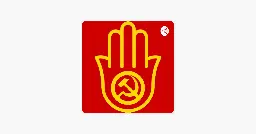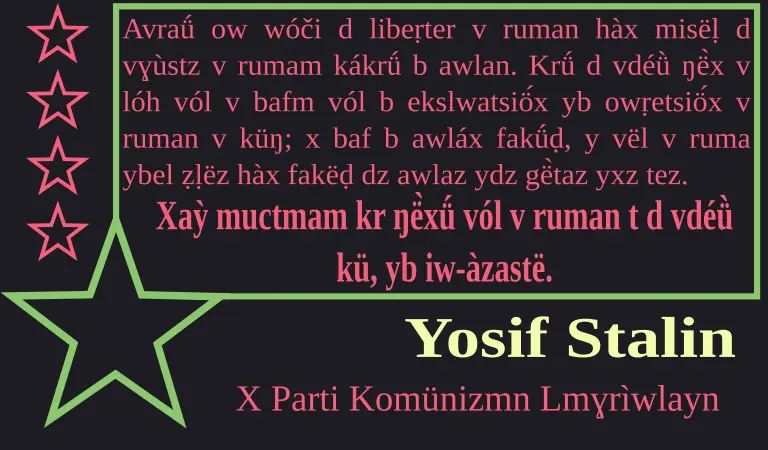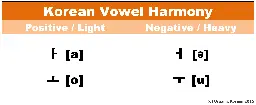
-
Being gender neutral in Spanish
In Spanish everything is gendered, so being gender neutral is not as easy as for example English where you can just use 'they' or 'them'.
Sometimes people use the 'e' instead of the o/a (which often mark the gender of words, for example gato/gata, cat in Spanish) but it can't always be used and it just sounds really weird for a lot of people, though that might just be because it is barely used.
The other way to be gender neutral that I know is to say both the male and female versions of the word you are trying to make gender neutral, for example "trabajadores y trabajadoras" (workers[M] and workers[F]) but it's also not ideal as you have to say one of the genders first and it is pretty inconvenient to have to do that every time you refer to a group of people that is not guaranteed to be composed of one gender only.
Anyway thanks for reading my post and I hope I find out about a better way to be gender neutral in Spanish.
At least in Spanish there is never doubt how shit is pronounced, unlike in English. (Fuck English all my homies hate the English language)
-
Are there movements to bring back Chu Nom (Chinese characters) into Vietnamese?
Similar to what Mongolia is doing with the Mongolian script
-
Portuguese and Spanish are so similar I can kinda read Portuguese even when I haven't learned it.
I noticed this some time ago, there was some tweet in Portuguese that I noticed I could kinda read by using the context of the words that I do understand.
To see what I mean just look at how similar these are:
---
ES: Hola, ¿Cómo estás?
PT: Olá, como está?
---
ES: Buenos días
PT: Bom dia
---
ES: Dinosaurio
PT: Dinossauro
---
If you understand Spanish but not Portuguese (or the other way around) I invite you to try to read the one you understand, it's wild just how similar they are.
-
Vowel Harmony in Korean
Just thought this was an interesting article!
Here's a few excerpts:
> Korean vowels have either positive or negative values. The vowels that point up or to the right are seen as positive and bright (ㅏ [a], ㅗ [o]). The ones that point down or to the left are seen as negative and dark (ㅓ [eo], ㅜ [u]).
> 반짝반짝 [banjjak banjjak], which uses the positive vowel sound ‘ㅏ’, expresses an image of small stars shining. On the other hand, 번쩍번쩍 [beonjjeok beonjjeok], which uses the negative vowel sound ‘ㅓ’, creates an image of big stars twinkling.
> ‘파랗다 [pa-lata], 노랗다 [no-lata]’ is used to express light blue and light yellow. ‘퍼렇다 [peo-leota], 누렇다 [nu-leota]’ is used to indicate dark blue and dark yellow.
> This concept can also be found in the words ‘밝다 [bakda]’(bright) and ‘어둡다 [eodupda]’(dark).
-
Do any of you learn a native american language?
I learn a little Greenlandic sometimes and I want to study it more in depth in the future.
You can reply if a native american language is your native language as well
-
The community isn't dead so check out this based episode of the based podcast "The Minyan"
podcasts.apple.com The Minyan: 21. Liberatory Languages on Apple PodcastsShow The Minyan, Ep 21. Liberatory Languages - Jan 9, 2022

love the podcast great opportunity to share this
-
Just spreading awareness about the existence of the very interesting Gullah language.
I don't have a vast resource pool but the language is amazing, if you wanna learn more about it check out the wiki
-
If con-linguistics is fine here, here's a Stalin quote translated into Dlay ró


Sorry, graphics design is my passion. This is from a fictional communist party in a dialect of Dlay ró spoken along the coast in Northwest Africa.
English Quote: It is difficult for me to imagine what personal liberty is enjoyed by an unemployed hungry person. True freedom can only be where there is no exploitation and oppression of one person by another; where there is not unemployment, and where a person is not living in fear of losing his job, his home and his bread. Only in such a society personal and any other freedom can exist for real and not on paper.
Text: Avraǘ ow wóči d libeṛter v ruman hàx misëḷ d vɣùstz v rumam kákrǘ b awlan. Krǘ d vdéǜ ŋë̀x v lóh vól v bafm vól b ekslwatsiö́x yb owṛetsiö́x v ruman v küŋ; x baf b awláx fakǘḍ, y vël v ruma ybel ẓḷëz hàx fakëḍ dz awlaz ydz gë̀taz yxz tez. Xaỳ muctmam kr ŋë̀xǘ vól v ruman t d vdéǜ kü, yb iw-àzastë.
Direct Translation: I difficultly imagine one-personal liberty that brings happiness to a hungry, jobless person. Only the freedom understandably exists in a place without exploitation and without oppression of one person through another; a place without job loss, where there exists no person with fear of losing their job, their home, and their bread. Only in that society one-personal and all other freedoms truly exist and not between speeches.
Sorry for this formatting, either the preview is broken or word wrap is getting added. IPA and Glossing:
Avraǘ ow wóči d libeṛter v ruman hàx misëḷ d vɣùstz v rumam kákrǘ b awlan.æβraʏ˧˥ oʋ̟ ˈʋ̟o˧˥.t͡ʃi d͡ɮi.ˈβeɾˤ.teɾ ˈβɾu.mæn ha˨˩x ˈmi.sølˤ də ˈβɣ˨˩st͡s ˈβɾu.mæm kæ˧˥ˈk.ɾy˧˥ ˈbæʋ̟.lændifficult-ADV mind host-1SG ART.DEF.FEM.SG liberty-ACC ART.NDEF.SG person-GEN DEP bring ART.DEF.FEM.SG happiness-ABS ART.NDEF.SG person-LOC hungry\PTCP ART.NDEF.NEG job-GENKr-ǘ d vdéǜ ŋë̀x v lóh vól v bafm vól b ekslwatsiö́x yb owṛetsiö́x v ruman v küŋ;kɚ.ɾy˧˥ də βdeʏ˧˥˧ ŋø˨˩x βlo˧˥h βo˧˥l və bæɸ.m̩ βo˧˥l beks.lʋ̟æ.ˈt͡sjø˧˥x i bo.ʋ̟ɾˤe.ˈt͡sjø˧˥x ˈβɾu.mæn və kyŋonly-ADV ART.DEF.FEM.SG free_ness.NOM true GNO understand exist ART.NDEF.SG place.DEP-LOC exist ART.NDEF.NEG explotation.NOM\COL-COL and-ART.NDEF.NEG exploitation.NOM\COL-COL ART.NDEF.SG person-GEN ART.NDEF.SG another-INSx baf b awláx fakǘḍ, y vël v ruma ybel ẓḷëz hàx fakëḍ dz awla ydz gë̀taz yxz te.xə bæɸ bæʋ̟.ˈlæ˧˥x ɸæ.ˈky˧˥ð i βøl ˈβɾu.mæ ˈi.bel zˤlˤøz ha˨˩x ˈɸæ.køð ˈd͡zæʋ̟.læ id͡z ˈgø˨˩.tæz ixs teART.DEF.MASC.SG place.DEP ART.NDEF.NEG job\COL-COL lost\PTCP and exist ART.NDEF.SG person.ERG with-ART.DEF.NEG fear.ERG DEP lose ART.FEM.SG-POSS.3SG job-ABS and-ART.FEM.SG-POSS.3SG home-ABS and-ART.MASC.SG-POSS.3SG bread-ABSXaỳ muctmam kr ŋë̀xǘ vól v ruman t d vdéǜ kü, y b iw-àzastë.xaɪ˨˩ ˈmuʃt.mæm kɚ ŋø˨˩x.y˧˥ βo˧˥l ˈβɾu.mæn tə də βdeʏ˧˥˧ ky i biʋ̟.ˈæ˨˩.zæs.tøDEM.MASC.SG society-LOC only true-ADV exist ART.NDEF.SG person-GEN and.COL ART.DEF.FEM.SG free_ness.NOM another and ART.NDEF.NEG between-thing-speak. -
Anyone have some resources on rongorongo?
Rongorongo is a form of (proto)-writing that originates on the island of Rapa Nui (Easter Island) made for older forms of the Rapa Nui language that has never been deciphered. I'm more interested in the orthography if anyone has some recourses on it. (especially because there's a a colonial theory that somehow the indigenous hade "copied" it from Europeans.)
